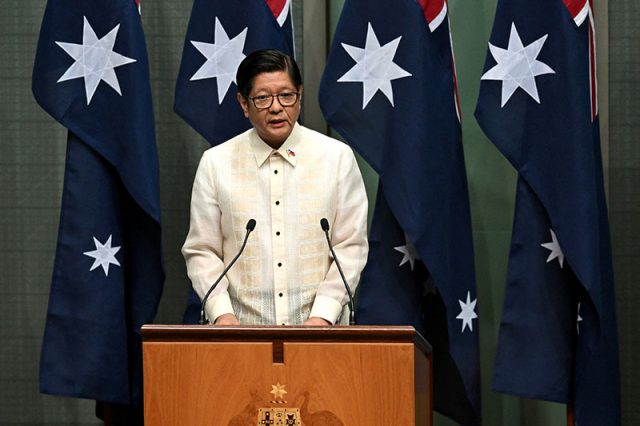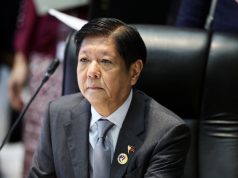
Philippine President Ferdinand Marcos Jr on Monday said his country will cooperate with China despite increased tensions, but would push back when its sovereignty, sovereign rights, and jurisdiction in South China Sea are ignored.
Ties between neighbours the Philippines and China have soured since Marcos took office in 2022, with repeated spats over disputed features in the South China Sea at a time when Manila has been forging closer defence ties with longtime military ally the United States.
Speaking at a Lowy Institute forum during a visit to Australia, Marcos, stressed too much emphasis was being placed on the superpower rivalry between the United States and China, at the expense of legitimate maritime interests of other countries in the region.
“It distracts us from calling out aggressive, unilateral, illegal and unlawful actions for what they are — attacks against the rule of international law and the principles of the Charter of United Nations,” he said.
In a departure from his predecessor’s pro-China stance, Marcos has accused China of aggressive acts in the Philippines’ exclusive economic zone, including use of water cannon and collision tactics to drive away Philippine vessels in areas Beijing sees as its territory.
Under Marcos, the Philippines has nearly doubled the number of its bases accessible to U.S. forces, including three new sites facing Taiwan, moves that China sees as provocations.
U.S.-Philippines military exercises have taken place regularly for decades, but manoeuvres have extended recently to include joint air and sea patrols over the South China Sea and close to Taiwan, actions China has seen as provocations and “stirring up trouble”.
China, which claims sovereignty over most of the South China Sea, has accused the Philippines of repeatedly trespassing on its territory, while urging dialogue to prevent mishaps.
“There are those who sometimes justify such provocations under the pretext of geopolitics and mischaracterise the remedies availed of by the aggrieved as mere tactics in this grand strategic game,” said Marcos, the son and namesake of the late Philippine strongman who ruled for nearly two decades until his fall in 1986.
“Our independent foreign policy compels us to cooperate with them on matters where our interests align, to respectfully disagree on areas where our views differ, and to push back when our sworn principles such as our sovereignty, our sovereign rights, and our jurisdiction… are questioned or ignored.”
RELATED: Satellite images reveal floating barrier at mouth of disputed atoll in South China Sea
— Reporting by Mikhail Flores and Karen Lema in Manila; Writing by Martin Petty









